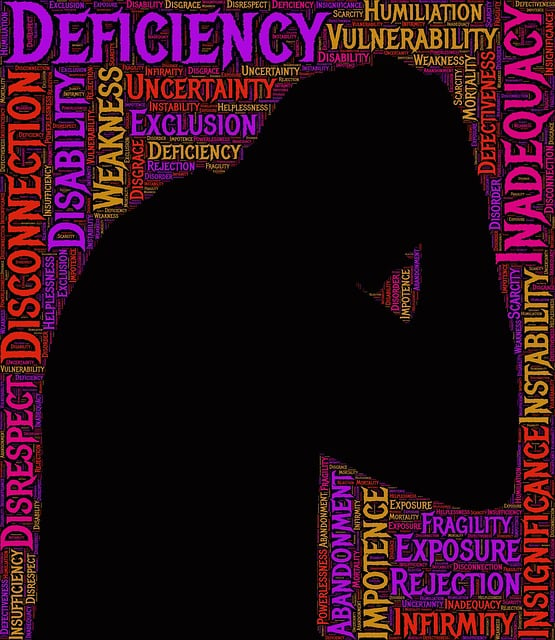Boulder Adjustment Disorder (BAD) requires specialized therapy for mental health professionals to manage effectively. BAD is characterized by disorientation and emotional distress after significant life changes, leaving individuals caught between their old and new realities. Effective therapy techniques like cognitive behavioral therapy (CBT), mindfulness practices, and community outreach programs promote resilience, foster emotional well-being, and develop coping strategies, facilitating a smoother adjustment process. Mental health professionals face challenges balancing empathy with professional boundaries while managing their own mental well-being, exacerbated by their role in community outreach programs aimed at reducing stigma. Developing a comprehensive Risk Management Plan is crucial for delivering effective care while mitigating risks, incorporating strategies like risk assessment questionnaires, Trauma Support Services, and ongoing supervision. Continuous adaptation, integration of new research, and best practices ensure safe and culturally competent practice in managing complex cases like Boulder Adjustment Disorder Therapy.
Mental health professionals often encounter complex situations, including clients with Boulder Adjustment Disorder. Effective risk management planning is essential to ensure safe practice and mitigate potential harm. This comprehensive guide explores the unique challenges these professionals face, providing a detailed overview of Boulder Adjustment Disorder therapy and strategies for developing robust risk management plans. Learn how to implement and adapt these plans for continuous improvement in clinical settings.
- Understanding Boulder Adjustment Disorder: A Comprehensive Overview
- The Unique Challenges Mental Health Professionals Face
- Developing a Risk Management Plan: Strategies and Tools
- Implementing and Adapting the Plan: Continuous Improvement for Safe Practice
Understanding Boulder Adjustment Disorder: A Comprehensive Overview

Boulder Adjustment Disorder (BAD) is a complex condition that often requires specialized therapy for mental health professionals to effectively manage and treat. This disorder manifests in individuals who have experienced significant life changes, such as relocation or traumatic events, leading to feelings of disorientation and emotional distress. The term ‘Boulder’ refers to the sense of being caught between two worlds—the old familiar and the new unfamiliar.
Therapy for BAD focuses on helping individuals adjust and adapt to their new reality while fostering emotional well-being. Through various therapy techniques, including cognitive behavioral therapy (CBT), mindfulness practices, and community outreach program implementation, mental health professionals can aid clients in developing coping strategies. By promoting resilience and encouraging the adoption of healthy habits, these Emotional Well-being Promotion Techniques can boost confidence and facilitate a smoother adjustment process.
The Unique Challenges Mental Health Professionals Face

Mental health professionals often find themselves at a unique intersection of challenges. Beyond the typical stresses of any healthcare provider, they must navigate complex emotional landscapes with clients dealing with conditions like Boulder Adjustment Disorder Therapy. This requires an intricate balance between empathy and professional boundaries, which can be emotionally taxing.
Additionally, these professionals frequently face the dual challenge of managing their own mental well-being while providing support to others. They are often on the front lines of community outreach programs implementation aimed at reducing stigma and promoting Anxiety Relief through Mental Health Education Programs Design. This demanding nature of the work necessitates robust risk management planning to prevent burnout, ensure resilience, and maintain the highest standards of care.
Developing a Risk Management Plan: Strategies and Tools

Developing a comprehensive Risk Management Plan is an essential step for mental health professionals to ensure they can deliver effective care while mitigating potential risks. This process involves identifying, assessing, and strategizing to address various challenges that may arise in therapy sessions. A well-structured plan enables therapists to adapt their approaches, providing tailored support for clients dealing with conditions like Boulder Adjustment Disorder Therapy (BADT), which requires specialized interventions.
The plan should incorporate a range of strategies and tools. This includes risk assessment questionnaires to gauge the client’s vulnerability and potential triggers. Additionally, implementing evidence-based practices such as Trauma Support Services and Social Skills Training can be beneficial. Therapists may also employ crisis management protocols, regular self-care routines for professionals, and ongoing supervision to ensure ethical and safe practice.
Implementing and Adapting the Plan: Continuous Improvement for Safe Practice

Effective risk management planning for mental health professionals involves an ongoing process of implementation and adaptation. As the field evolves, so too should risk management strategies to ensure safe and culturally competent practice. Mental health professionals must stay abreast of new research and best practices, integrating these insights into their existing plans. For instance, addressing potential challenges related to Boulder Adjustment Disorder Therapy requires tailored interventions and support mechanisms.
Continuous improvement demands regular review and updating of risk management protocols. This includes incorporating feedback from both clients and colleagues, staying informed about relevant legislative changes, and participating in specialized training like Healthcare Provider Cultural Competency Training and Mental Wellness Coaching Programs Development. Trauma Support Services also play a vital role in fostering a resilient practice environment where professionals can navigate complex cases with confidence and adaptability.
Mental health professionals play a vital role in fostering well-being, but they also face unique challenges. Effective risk management planning, incorporating strategies tailored to address Boulder Adjustment Disorder therapy, is essential for ensuring safe and compassionate care. By understanding the specific risks, developing robust plans, and continuously adapting them, professionals can enhance their practice, provide superior patient outcomes, and maintain a healthy work-life balance. This comprehensive approach not only protects practitioners but also enables them to offer exceptional support to those seeking mental health services.














